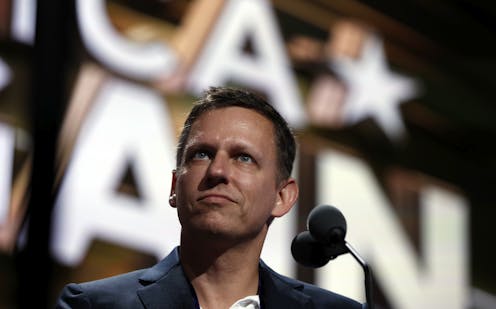the tech bros trying to outsmart the end of the world
- Written by Tom Doig, Lecturer in Creative Writing, The University of Queensland

Douglas Rushkoff’s newest book, Survival of the Richest: Escape Fantasies of the Tech Billionaires[1], grew out of a brilliant 2018 Medium article[2] of the same name, which went viral and had people (aka his US editor) clamouring for a full-length treatment.
Review: Survival of the Richest: Escape Fantasies of the Tech Billionaires – Douglas Rushkoff (Scribe Publications)

















